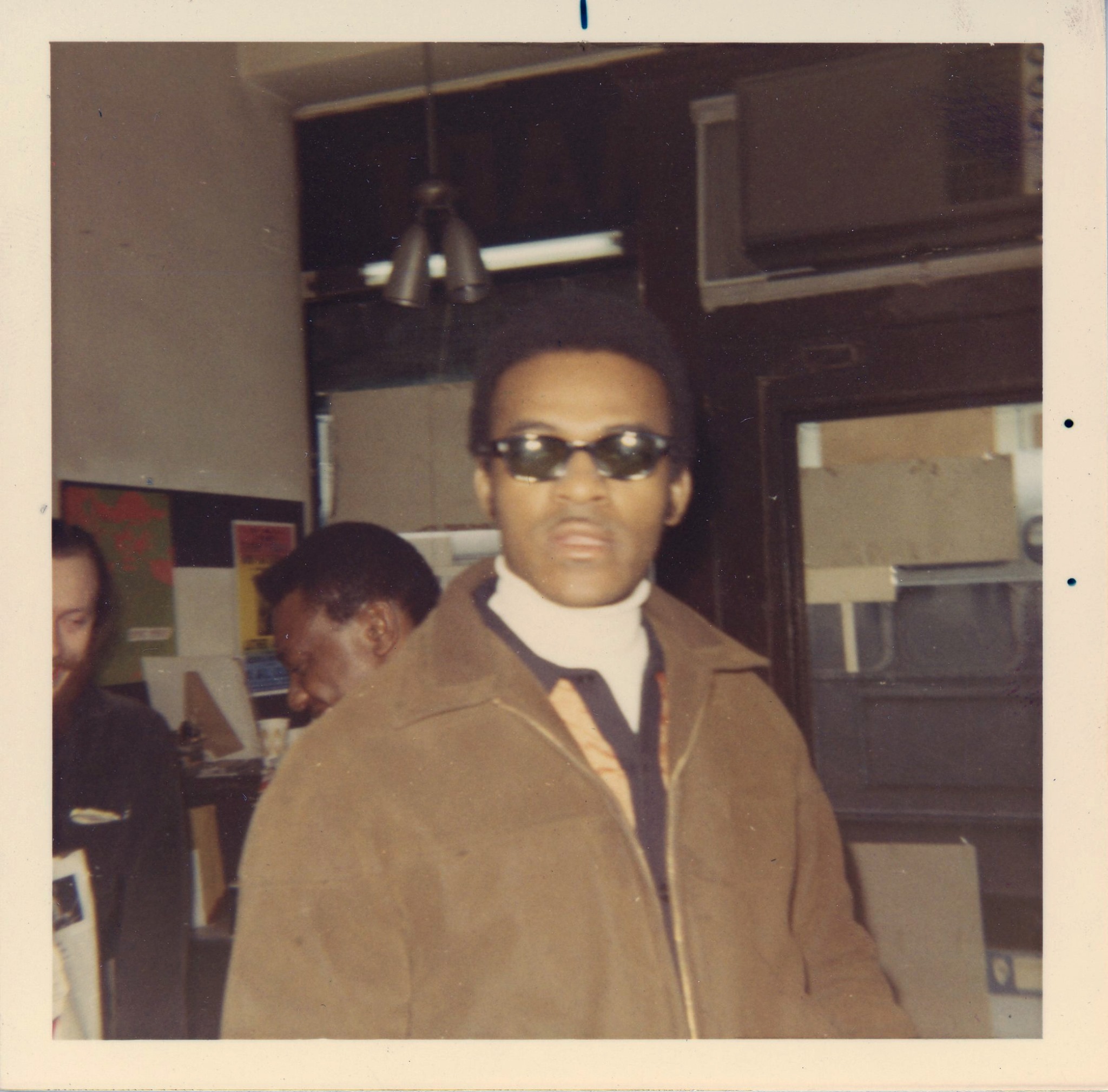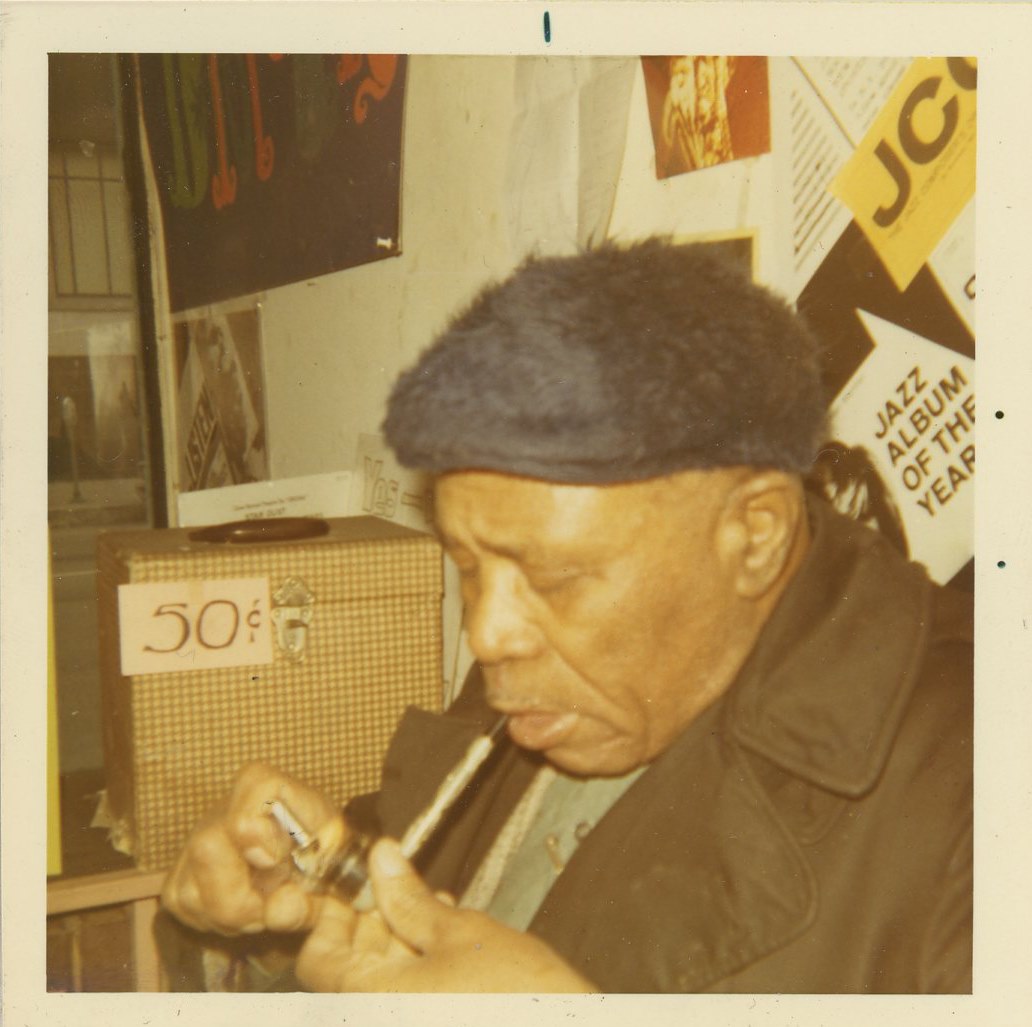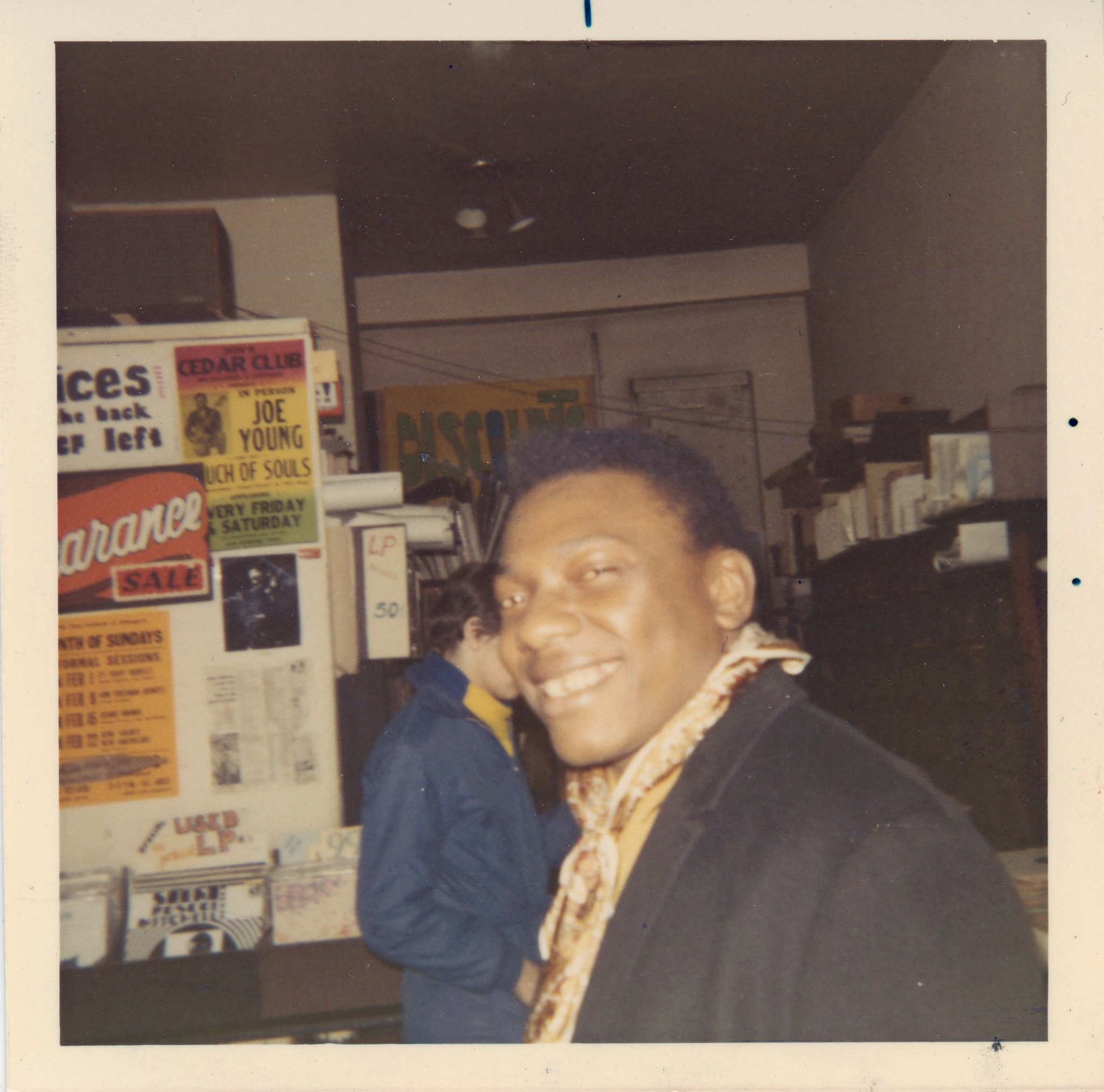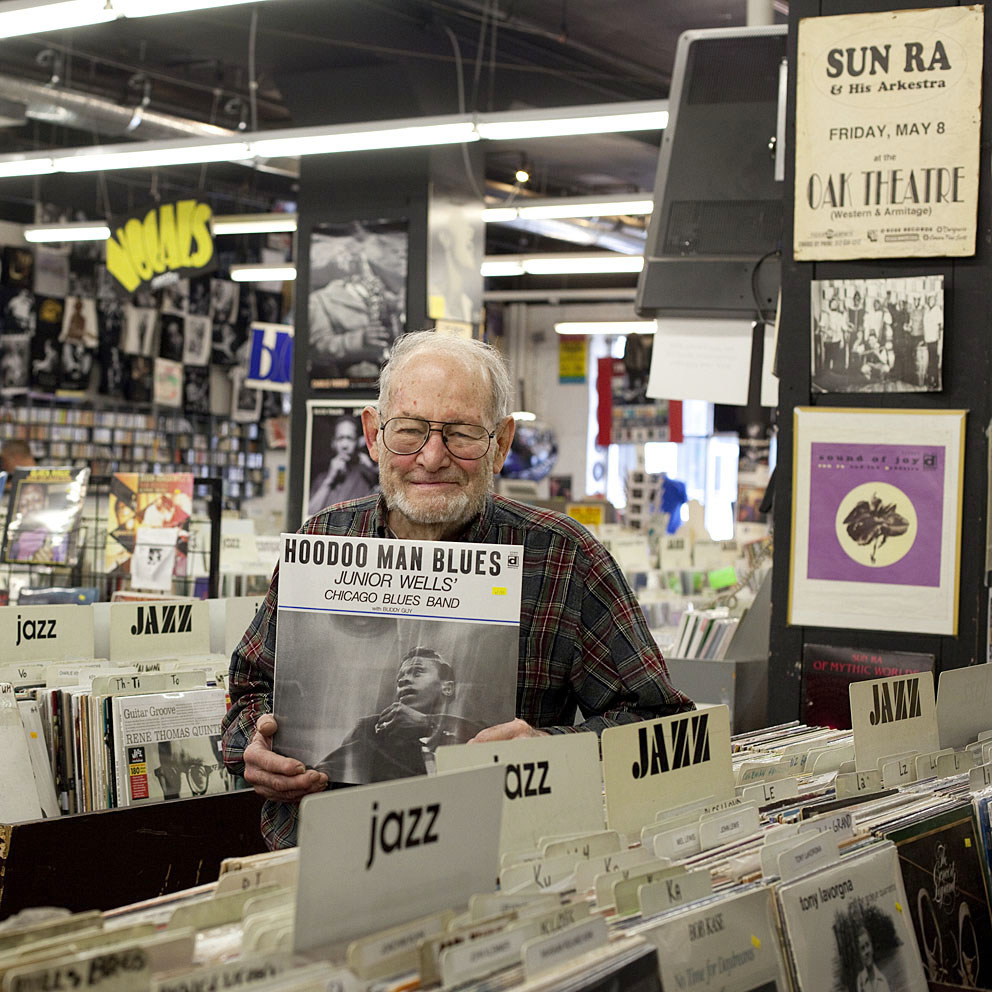I learned just now that one of my mentors in life, work and musical appreciation has died. Bob Koester, founder of Chicago’s Delmark Records label and Jazz Record Mart store has passed. He was 88 years old.
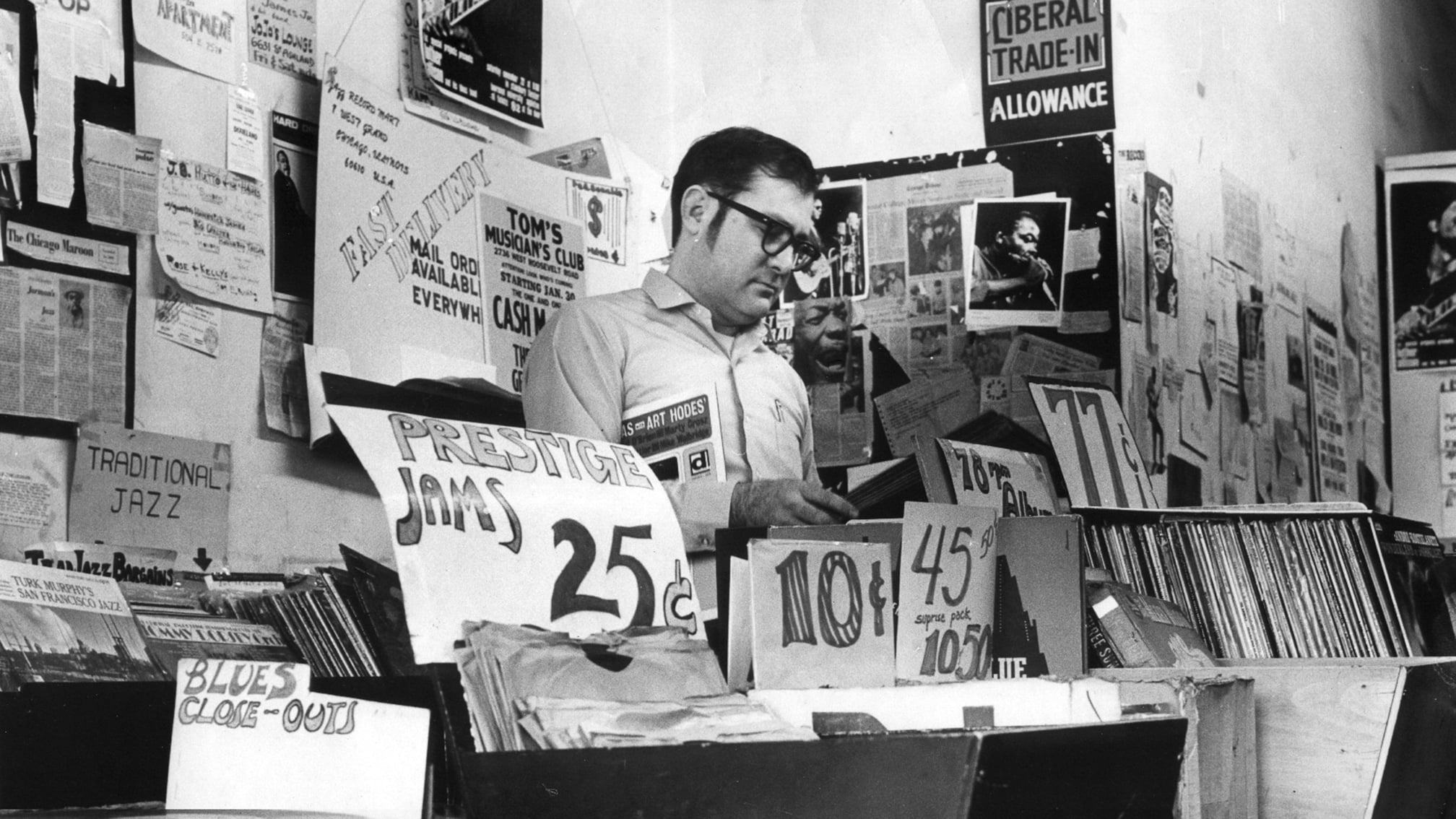
Delmark, of course, was the label that brought us at least five of my Top Ten Desert Isle Blues Discs of all time — albums by Magic Sam, Junior Wells J.B. Hutto & the Hawks, Arthur “Big Boy” Crudup, Sleepy John Estes, Jimmy Johnson, Carey Bell, and Jimmy Dawkins. And then there was jazz: The Art Ensemble of Chicago, Anthony Braxton, Kalaparusha Maurice McIntyre, Muhal Richard Abrams.
I even suggested the title for Magic Sam’s second album: Black Magic. Bob informed me that Living Blues co-founder Jim O’Neal had already chimed in with that title idea as well. And so it became the title.
When I was a 13-year-old kid in the Chicago suburbs, I became aware of blues, and suddenly needed to know everything there was to know. So at 14, I got on the El train from my hometown of Wilmette bound for the corner of W. Grand Ave. & N. State St., which was the original Jazz Record Mart location. Bob could usually be found behind the counter. And he took hours over the years to answer my ceaseless barrage of questions — about blues artists, blues bars (which I was too young to enter legally), record labels, record distribution, record collecting. I was 14 and he was (by my math) 47. But we had a sort-of friendship. He encouraged me to publish my blues fanzine, Blue Flame.
He was a very different kind of adult from my classical music parents. And of course I always bought lots of records: LPs, 45s and 78s. There was a 25 cent Prestige jazz 78 RPM bin which one day became a 39 cent Prestige 78 bin. Inflation was a bitch!
Over the years, I went to the Jazz Record Mart about one Saturday per month. While there, I met Moondog (in full Viking regalia), Big Joe Williams, Sunnyland Slim, Jimmy Dawkins, Wild Child Butler and future Alligator Records founder Bruce Iglauer. In conversations with all of them, you could say I learned a bit about life.
I had lost contact with Bob around the time I left Chicago for college in rural Illinois, and certainly by the time I left for California. The last time I saw him was at a Blues Foundation function at B.B. King’s Blues Club in Universal City, Calif. A few years ago, he wisely sold Delmark to two great younger music freaks, Julia A. Miller and Elbio Barilari, whom I like a lot, and who are finding some 21st Century solutions for keeping the Delmark tradition relevant and accessible (like the Jimmy Johnson livestreams every Saturday).
I will be forever grateful to Bob Koester, not only for his life’s work, but for not writing off this suburban teenager. It meant a lot. In fact, it meant everything.
